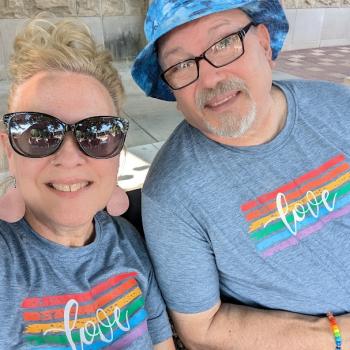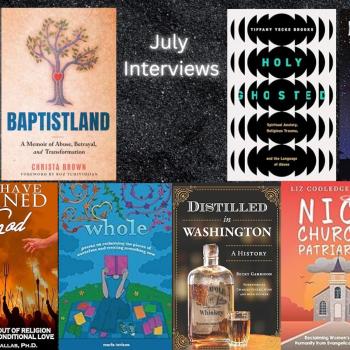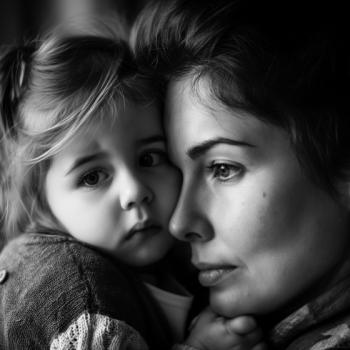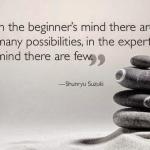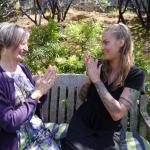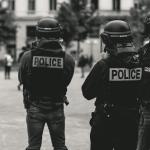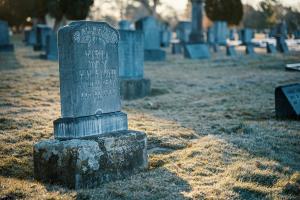
Yesterday, I spoke at the funeral of an old friend of mine, Mark. It was the first one I had done probably in about 10 years. It was actually just a graveside, so it wasn’t that complicated and was fairly short. I forgot about all the things like the uneven ground at this cemetery and the challenges this posed because my mobility was limited. I also forgot that temperatures and weather at a cemetery seem to be either scorching hot, windy, or blistering cold.
Nevertheless, I persisted, and here are the words that I spoke to my friend. There was no prayer or scriptures, but one of the people there said, “You said exactly what he would have said; you sounded like him.”
The best compliment ever!
So why have a funeral or graveside service anyhow?
Why do we all take the time to get dressed, get in our cars, and go to this cemetery to do what we’re doing? I think it’s important to ask these types of questions. We want to always make sure we’re doing the best things we can and not just doing what we’ve always done.
Are there some benefits to doing what we’re doing right now?
Why do we gather when the person we are honoring has already left? We know it doesn’t do anything for them; it is about them, but what does it do for us?
Remembering as we gather.
Human beings tend to be storytellers. When we gather together, we tell stories, mostly good ones, but sometimes we even whisper about the bad things we remember. The good things help edge the memories into our subconscious, and the bad things help us learn lessons of what not to do the next time.
Sometimes, humans take our stories too seriously and derive too much meaning from them. But most of the time, they are helpful because stories bring us together.
Realize there is a Dash
Each person’s marker has two dates on every tombstone in the cemetery. As many have noticed, the first date is the day they were born, and the last date is the day they passed. In between is the dash, which represents our entire life. Each one of us has a certain amount of time between when we’re born and when we die, known as the dash. We can’t manipulate the length of this dash; it is what it is!
We make a lot of assumptions about God and the afterlife. Even if we call them beliefs, in the long run, they are still just guesses because we can’t really prove one way or the other about our assumptions. But what is absolutely certain is there is a Time when we drew our first breath, and there will be a time when we draw our last. Our efforts would be best spent making the most of the dash that’s in between. It’s never too late to start doing what brings your life and to do it with all your heart.
Realize gathering is good
Near where they had the funeral, there was once a meeting to see if they could consolidate two of the schools that were already somewhat a combination of other towns. I remember some dissent at the meeting because people were at all odds with those in the neighboring town. What they didn’t realize was that they were very similar and only lived a few miles apart. They were more alike than they were different.
My friend says two of the most important things for coming together are proximity and narrative. Brené Brown says, “It’s hard to hate someone up close.” When we gather, much like we do at a funeral, it helps us realize that we aren’t that much different and they are not the enemy. In many cases, someone else wrote a narrative for us, and we adopted it without thinking. Our beliefs come mostly from where we live and who we listen to; they may or may not be true.
Responding to adversity
I remember when I lived in the area of the funeral, there were a couple of instances where a farmer died before his crops could be harvested. I observed the almost magical side of people coming together to help the widow bring the crops in. It was a pure example of brotherly love and what we can do when adversity tells us what to do in normal life.
Dieter F. Uchtdorf said, “It is your reaction to adversity, not the adversity itself, that determines how your life will develop.”
Laura and I have been learning about trauma and how each trauma contains an event and a response. It’s not necessarily what happened, but how we responded or how other people around us responded to the event is damaging.
Bob Marley said, “You never know how strong you are until being strong is your only choice.”
Reversing our identity
The funeral was in Nebraska, and Nebraskans are very proud of being Nebraskans, almost as important as being fans of the football team called the Huskers. All of us can make up our own minds about our state and how proud we are to be from where we are, but some of us consider our negative statements like “I am a failure” to be our main identity. Too often, we would minimize a statement like “I am kind” to be a good thing but not that important or not our main identity.
I challenged them to consider raising the importance of simply being kind. Something happened to our country during COVID. We could be mean and get away with it and say things that we would never say in real life. Many made up stuff to be angry about and challenged others to do the same.
I would challenge you to never vote for an unkind candidate or trust the pastor that is mean, but i realize sometimes we don’t have those options. We can’t always control all of those external stimuli, but we can take charge of whether we love our neighbor. And this is, in fact, our most important identity: to love our neighbor, to love all our neighbors, because this is what changes the world for the better.
Funerals give us a chance to reconsider, remember, and respond. And more than anything, they allow us to start over once again.
Howard Thurman said, “Don’t ask what the world needs. Ask what makes you come alive, and go do it. Because what the world needs is people who have come alive.”
Be where you are, be who you are, be at peace.
Karl Forehand




